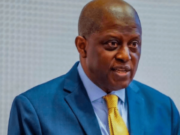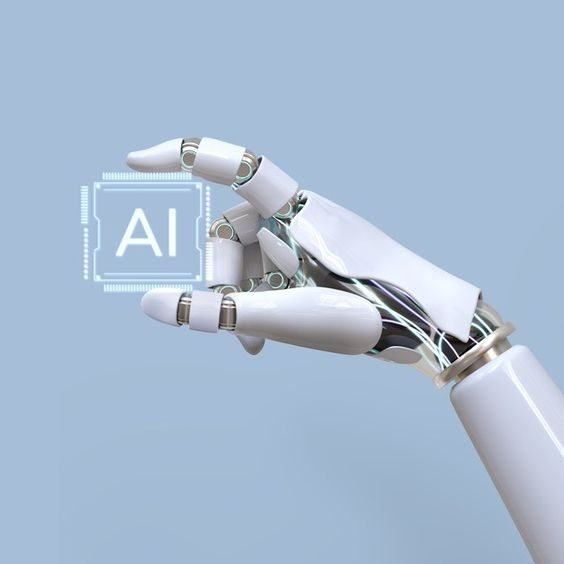Nigeria will provide a framework for the deployment of AI.
According to experts, Nigeria must create a strong framework that will direct the moral and responsible integration of artificial intelligence (AI) into its economy and society as the technology revolutionizes industries worldwide.
According to health analysts, the lack of a comprehensive governance framework puts long-term innovation, data security, and public interests at serious danger, particularly in the fields of healthcare, education, and innovation.
Nigeria is anticipated to be a key player in international attempts to govern artificial intelligence, according to Ricardo Baptista Leite, president of the UNITE Parliamentarians Network for Global Health and CEO of HealthAI. Leite now spearheads an appeal to encourage the inclusion of ECOWAS nations in the organization.

According to Leite, strengthening regulatory capabilities that meet international standards requires a framework. In order to ensure AI’s ethical and responsible usage to advance sustainable development in industries like healthcare, education, and innovation, he urged the country to create regional capacities for regulating its rapid spread. In the end, our goal is to assist governments in their endeavors to safeguard citizens and patients while advancing and utilizing AI’s potential to revolutionize healthcare systems. By doing this, we can address the ethical and technological issues AI raises while also assisting in improving everyone’s quality of life and well-being.
According to Investopedia, AI technology “enables computers and machines to simulate human intelligence and problem-solving tasks.” It is thought to have a great deal of promise for enhancing health, including better clinical care and diagnosis, more research and development, disease surveillance, outbreak response, and health system management, particularly in low- and middle-income nations.
Some medical facilities use technology to give real-time advice, relieving doctors of some of their workload and giving patients more time.
Its ability to acquire vast amounts of data and make enormous decisions contributes to the expansion of radiology’s and medical imaging’s capability.
According to Tedros Ghebreyesus, director-general of the World Health Organization (WHO), an AI tool is already being evaluated in India, Kenya, Malawi, Rwanda, South Africa, and Zambia to screen for cervical cancer. AI has the potential to enhance the identification of COVID-19, TB, and numerous other illnesses. According to the WHO, artificial intelligence can ease the strain on these health system issues by facilitating quick processing of large data, providing access to vital information, improving results, and bringing about discoveries. Bill Gates and other tech titans believe AI can help lessen the health disparities that are prevalent in developing nations. In order to guarantee that the technologies are used to the health issues that impact the most impoverished, the Gates Foundation is now giving AI top priority.individuals worldwide.He anticipates that by using AI to do certain activities like handling paperwork, filing insurance claims, and creating notes from doctor’s appointments, healthcare personnel would be able to maximize their time.
Gates said in one of his books that the technology will speed up medical advancements.
By providing local regulators with best practices for ethical AI use, HealthAI’s toolbox aims to address these issues by fostering innovation and protecting against unforeseen effects.To make sure AI works for the public benefit, the toolkit offers recommendations on bias detection, data security, and transparency practices.African nations must actively contribute to the development of international AI legislation.
The potential advantages of AI may be eclipsed by problems associated with inequality, data misuse, and privacy if this gap is not closed immediately, according to Leite.”Nigeria has the chance to work with European and other international partners to develop robust regulatory frameworks that strike a balance between public safety and innovation.”
The urgent need for an AI toolkit and awareness training for Nigerian government agencies has been reaffirmed with the help of Njide Ndili, country director of PharmAccess and founding member of the Digital Transformations for Health Lab.
“As we embrace these technological advancements, it is imperative that we establish a sound regulatory framework for AI in order to protect our communities,” Ndili stated.
Join Our Social Media Channels:
WhatsApp: NaijaEyes
Facebook: NaijaEyes
Twitter: NaijaEyes
Instagram: NaijaEyes
TikTok: NaijaEyes














![Mr Macaroni Drops Blistering Remark: ‘APC Filled with Most Corrupt People’ as He Slams Tinubu’s Controversial Pardon for Criminals=]] Mr Macaroni](https://naijaeyesblog.com/wp-content/uploads/2025/03/Mr-Macaroni-1-1-180x135.avif)

![Chaos Erupts in Abuja Hotel as BBNaija Star Phyna Sparks Fierce Scene Over Alleged N200,000 Dispute [VIDEO] Phyna](https://naijaeyesblog.com/wp-content/uploads/2024/11/A-Picture-of-Phyna-BBNaija-180x135.jpg)























